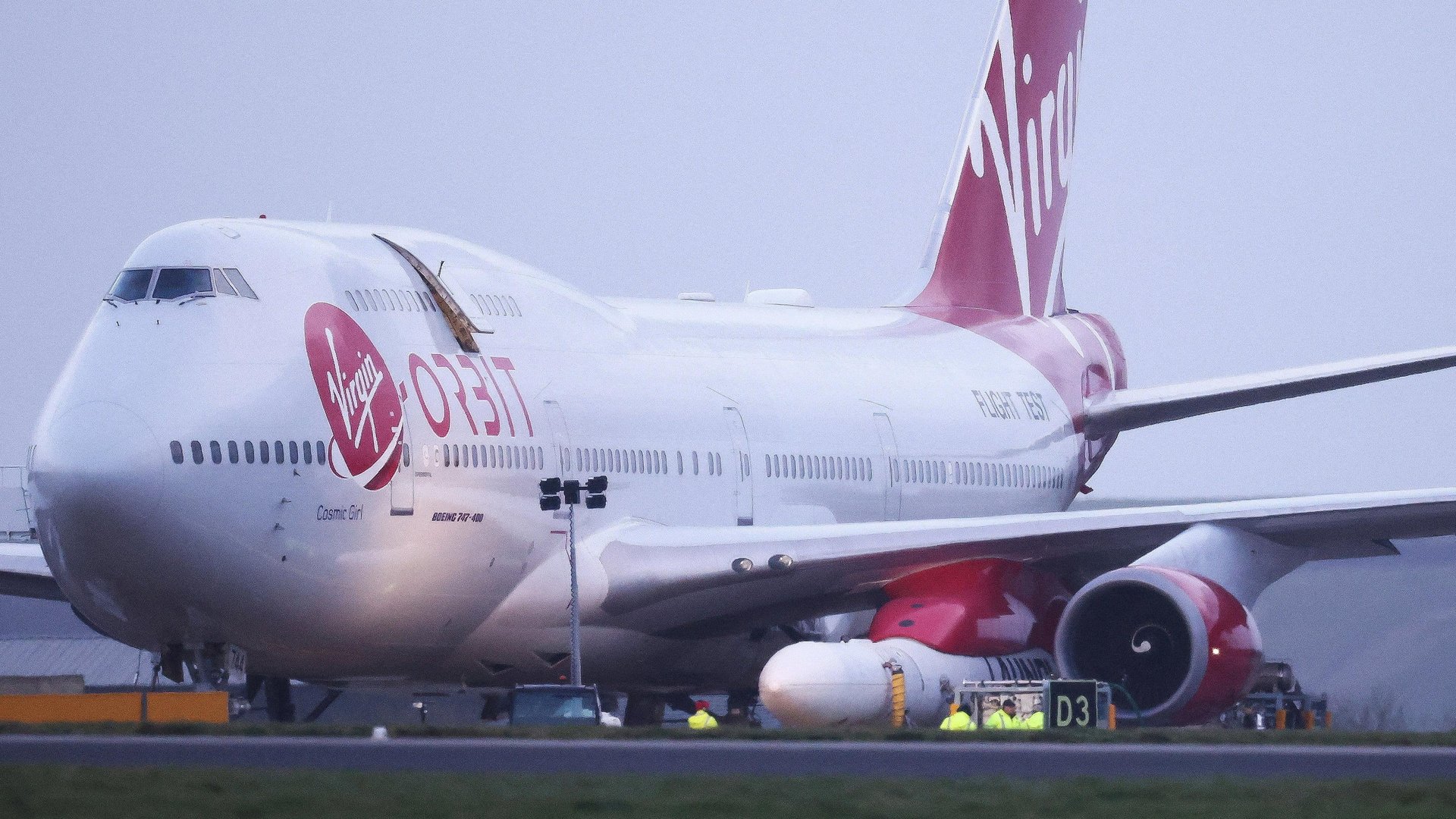Virgin Orbit's share price hit a new record low in the wake of mass layoffs
Richard Branson’s company is also ceasing operations for the foreseeable future

Richard Branson’s rocket company is running out of fuel.
Suggested Reading
Virgin Orbit announced it was laying off 675 people—around 85% of its workforce—“in order to reduce expenses in light of the Company’s inability to secure meaningful funding,” according to a regulatory filing submitted on March 30. The layoffs are expected to be completed by April 3.
Besides discussing the layoffs, which affect all departments, CEO Dan Hart told employees at a staff meeting that the company will cease operations “for the foreseeable future.”
In January, the US-based company was pumped up for its first UK launch—the “Start Me Up” mission, named after the hit Rolling Stones song—which would also be its first international mission. However, after a technical glitch caused the launch to fail, operations at the British billionaire’s enterprise were largely put on pause.
A little over a week ago, the struggling satellite company brought back a “small team” to prepare for the next launch with hopes riding on a new investor coming to the rescue, but those hopes did not materialize.
Quotable: Virgin Orbit CEO says lack of funding led to layoffs
“Unfortunately, we’ve not been able to secure the funding to provide a clear path for this company. We have no choice but to implement immediate, dramatic and extremely painful changes.” —CEO Dan Hart to employees, according to audio of the all-hands meeting announcing layoffs obtained by CNBC.
Virgin Orbit in distress, by the digits
41%: How much the firm’s stock tanked in after-hours trading on Thursday (Mar. 30), following the downsizing
$15 million: Estimated aggregate charges stemming from the layoffs, including $8.8 million in severance payments and employee benefits costs, and $6.5 million in other costs primarily related to outplacement services and WARN Act exposure. (The WARN Act requires employers with more than 100 employees to provide 60 days’ advance written notice prior to a mass layoff “affecting 50 or more employees at a single site of employment.”)
6: LauncherOne missions, including two demonstrations
33: Satellites Virgin Orbit put in space via four successful launches
$25 million, $20 million, and $10 million: Small tranches of funding the company has steadily brought in as debt via an investment arm of Branson’s Virgin Group in November, December, and February, respectively. These amounts were very low and the last one bore an interest rate of 12%, double the rate of the November and December notes, which had interest rates of 6% each. All signs point to Branson’s reluctance to keep funding the firm.
$150 million: Virgin Orbit’s market valuation as of Mar. 21, down significantly from $3.7 billion when it went public in January 2021.
Charted: Virgin Orbit’s plummeting share price
A brief history of Virgin Orbit’s Cosmic Girl and LauncherOne
2001: The company builds the Cosmic Girl—a modified 747 jet—to send satellites into space, by dropping a rocket from under the aircraft’s wing mid-flight at around 35,000 ft (10,668 m) in a maneuver known as air launch. It is operated by Virgin Group’s commercial airline company Virgin Atlantic, until…
2015: When Branson’s space flight company Virgin Galactic buys it. Then, in…
2017: It is transferred to Virgin Orbit when the company is spun off from Virgin Galactic. The plane is used as the first stage launch platform for the air launch stage of the smallsat orbital launch vehicle, the LauncherOne.
Person of interest: Matthew Brown
Earlier this month, Virgin Orbit was in talks to bag a $200 million capital infusion from private investor Matthew Brown in return for Brown gaining control of the company. This would’ve been the Texas-based investor’s first foray into the space sector. It didn’t pan out, but even if it had, that funding would get Virgin Orbit a year’s runway at most.
Fun fact: Virgin Orbit’s ventilators
During the covid-19 pandemic, in March 2020, Virgin Orbit designed, prototyped, and manufactured bridge ventilators to provide breathing support to patients with moderate symptoms or those who were on the mend. The devices cost around $200-500 versus $20,000-30,000 for the more sophisticated ventilators.
Related stories
🚀 The venture-backed rocket industry is finally coming back to Earth